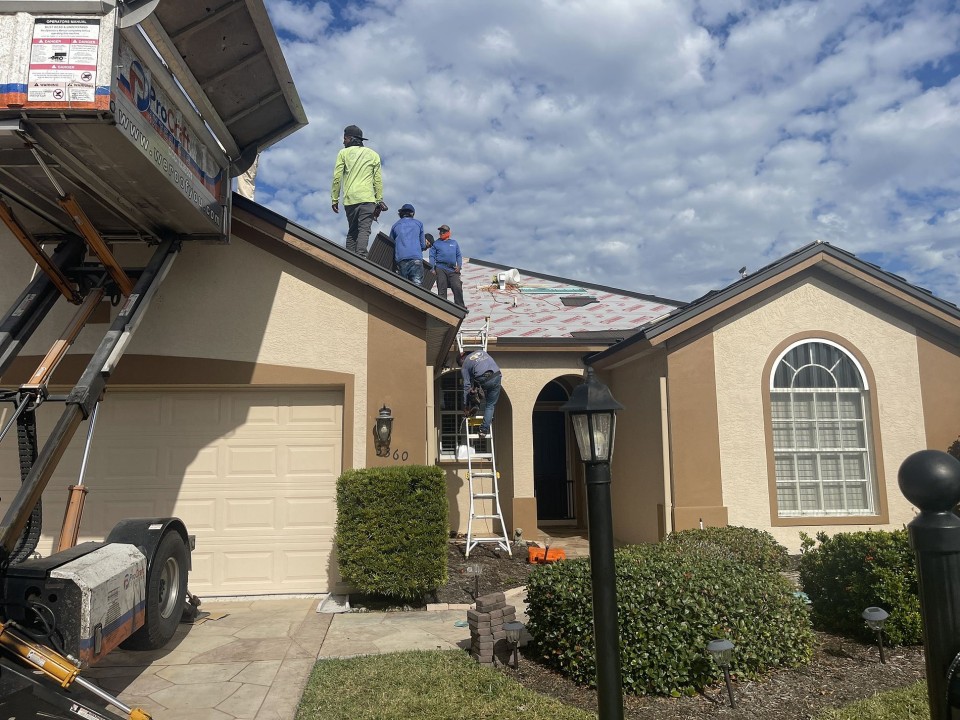
Importance of Roof Insulation
Insulation plays a pivotal role in the overall performance and comfort of residential roofing systems. It is not just about keeping the home warm in winter and cool in summer; proper insulation affects everything from energy efficiency to moisture control. This article delves into the significance of insulation in residential roofing, exploring its benefits, types, and considerations for homeowners explore further.
Energy Efficiency and Comfort
One of the primary functions of roof insulation is to maintain a comfortable indoor temperature regardless of the outdoor weather conditions. By reducing heat transfer, insulation ensures that heating and cooling systems work more efficiently, leading to significant energy savings. A well-insulated roof can prevent heat loss during the winter and keep the home cooler during the summer months.
Moisture Control
Moisture can be a significant problem in residential roofing, leading to issues like mold growth and structural damage. Insulation helps in regulating the temperature of the roofing surface, thereby reducing the potential for condensation which can result in moisture accumulation.
Noise Reduction
Insulation also serves as an effective barrier to external noise, contributing to a quieter and more peaceful living environment. This is particularly beneficial in areas with high traffic or other sources of outdoor noise.
Types of Roof Insulation
There are various insulation materials and methods available, each with its own set of advantages and considerations. The choice of insulation often depends on the specific needs of the home, climate, and budget.
Batt and Blanket Insulation
This type of insulation, typically made from fiberglass or mineral wool, comes in rolls or batts that fit between the rafters or studs in the roof. It’s one of the most common and cost-effective methods, suitable for new construction and accessible attic Spaces.
Rigid Foam Insulation
Rigid foam boards offer higher R-values (a measure of thermal resistance) per inch of thickness than batt insulation. They are ideal for reducing thermal bridging through wooden rafters and can be used in both new constructions and renovations. However, they are generally more expensive.
Spray Foam Insulation
Spray foam offers superior insulation and air sealing properties. It can be applied directly to the underside of the roof, filling gaps and crevices that might otherwise allow for heat transfer or air leakage. While it provides excellent insulation, it is also the most expensive option and typically requires Professional installation.
Reflective Insulation
Reflective insulation, or radiant barriers, are used primarily in hot climates to reflect solar heat away from the home. Installed under the roofing material, they can significantly reduce cooling costs but are less effective as thermal insulation to retain heat.
Considerations for Homeowners
When deciding on the best insulation for a residential roof, homeowners should consider several factors:
Climate
The local climate plays a crucial role in determining the type and amount of insulation required. Homes in colder regions will benefit from higher R-values to prevent heat loss, while those in warmer areas might prioritize reflective insulation to keep the home cool.
Roof Design
The design of the roof can also influence the choice of insulation. Flat roofs, for example, may have different requirements compared to pitched roofs, affecting the materials and methods used.
Existing Insulation
In cases of retrofitting, the condition and type of existing insulation need to be assessed. Sometimes, additional insulation can be added to enhance energy efficiency, but in other cases, old insulation might need to be removed and replaced.
Cost
Finally, the cost is a significant consideration for many homeowners. While higher-quality insulation options may offer better energy savings in the long run, the initial investment can be substantial. It’s important to balance upfront costs with potential energy savings and long-term benefits.
Conclusion
Proper insulation in residential roofing is crucial for energy efficiency, comfort, moisture control, and noise reduction. With various materials and methods available, homeowners have the flexibility to choose the best solution for their specific needs, taking into account factors such as climate, roof design, existing insulation, and budget. Investing in the right insulation can lead to significant energy savings and a more comfortable living environment, making it a critical component of any residential roofing system.